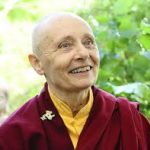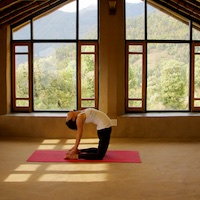 What: Teaching on Nagarjuna’s ‘Letter to a Friend’
What: Teaching on Nagarjuna’s ‘Letter to a Friend’
When: 15-17 April 2020
Where: Deer Park Institute, Bir
Who: Jetsunma Tenzin Palmo
Letter to a Friend (Skt. Suhṛllekha; Tib. བཤེས་པའི་སྤྲིང་ཡིག་, shepé tring yik, Wyl. bshes pa’i spring yig) — a shastra by Nagarjuna, which belongs to his Collection of Advice.
Nagarjuna (1st-2nd century A.D.) wrote this celebrated poem as a letter of advice to his friend King Gautamiputra/Satavahana.
This advice gives a concise and comprehensive introduction to the entire path and practice of Buddhism. It guides both householders and the ordained onto the path leading to liberation and
Despite its short length (123 verses), it covers the whole Mahayana path with unusual clarity and memorable imagery; thus it is widely quoted by Tibet’s great masters and scholars in the many commentaries they have written on the Buddhist path.
Commentary recommended
“Nagarjuna’s Letter to a Friend with commentary by Kangyur Rinpoche ”
For information and registration, see this page.


You must be logged in to post a comment.